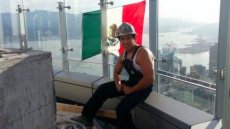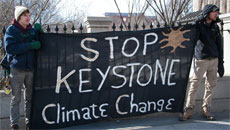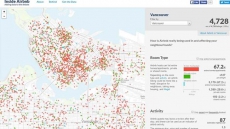VANCOUVER — A former WestJet flight attendant already embroiled in a legal dispute with the airline has launched a second lawsuit, accusing the company of fostering a corporate culture that tolerates harassment against female flight attendants and silences alleged victims.
Mandalena Lewis said she decided to file the latest lawsuit, potentially a class-action case, after former colleagues came to her with their stories of workplace harassment when her initial complaint became public.
"The common denominator was definitely fear. They were afraid to say anything for fear of losing their jobs, which is really sad and just shows there's a bigger problem that needs to be addressed," Lewis said in an interview.
"It's 2016 and we are still facing a huge injustice in our workplace environment. To say that WestJet has failed to create and maintain a safe work environment is incredibly accurate."
Lewis couldn't say how many women might be involved in the lawsuit.
She launched a separate lawsuit against WestJet earlier this year over allegations the airline didn't take proper action after she reported being sexually assaulted by a pilot while on a stopover in Hawaii.

On Monday, she submitted a notice of claim in British Columbia Supreme Court, asking that the second case be granted class-action status on behalf of all WestJet female flight attendants.
None of the allegations have been tested in court.
A spokeswoman for WestJet said in an email that the company is not in a position to comment because it hasn't been served with a notice of claim.
A document filed in court accuses WestJet of breaching its contract with its female flight attendants by failing to follow its own anti-harassment policy.
It describes how the airline industry is historically fraught with discriminatory attitudes toward women and that WestJet has failed to buck that trend by allowing a workplace culture that is permissive of harassment.
"This has included attitudes by some male pilots that female attendants are or ought to be sexually available to them and that harassment against female flight attendants is generally acceptable, or at least will not be subject to meaningful sanction," said the document.

Behaviours mentioned in the notice of claim include sexist jokes, humiliating and obscene comments, unwelcome physical contact and sexual advances.
Included in that list is "midnight knocking," which is defined as a request or demand for sexual favours by pilots while on a stopover.
The notice of claim alleges WestJet encourages women who report harassment to remain silent and are told they will be disciplined if they fail to keep quiet.
It describes WestJet's actions as "high-handed, malicious, arbitrary and highly reprehensible," and accuses the airline of profiting or obtaining an advantage by favouring male pilots over female flight attendants.
"WestJet (protects) harassers, often pilots, whom WestJet views as more economically valuable employees," the claim says.
While recourse through the justice system has its problems, bringing these issue to light helps create a space for a larger discussion, Lewis said.

"It's fuelling this fire of having women step forward and breaking the silence and breaking the fear, ... to be able to make change," she said.
"I won't stop until that happens."





